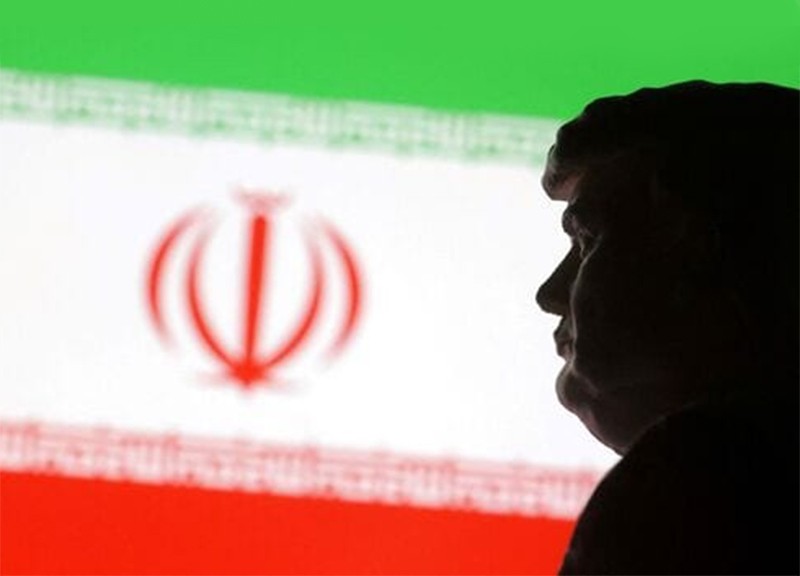
Tehran will try to delay and humor Trump as it has other Presidents.
By The Editorial Board
President Trump says he's written to Iran's Ayatollah Ali Khamenei, whose regime insists sanctions relief precede any nuclear talks. But Iran is in no position to dictate preconditions. As Mr. Trump might say, it doesn't have the cards.
Speaking on Thursday to Fox Business, Mr. Trump revealed that he sent a letter Wednesday to Iran's Supreme Leader "saying I hope you're going to negotiate, because if we have to go in militarily, it's going to be a terrible thing for them." On Friday Mr. Trump reiterated that the military option is viable. "I would rather have a peace deal than the other option, but the other option will solve the problem," he said.
"We are down to the final moments. We can't let them have a nuclear weapon," Mr. Trump added. "Something is going to happen very soon." As veteran nuclear expert David Albright wrote last week, "Iran is undertaking the near-final step of breaking out, now converting its 20 percent stock of enriched uranium into 60 percent enriched uranium." That can become weapons-grade in days.
No wonder Iran has been stalling Mr. Trump. President Masoud Pezeshkian says he wants to negotiate but is held back by his boss, Mr. Khamenei, who doesn't. They'd like to play good-cop-bad-cop on another U.S. President, raise the asking price to negotiate, and then talk until America loses the ability to "snap-back" United Nations sanctions in October.
Thanks to Israel, Iran is at its weakest point in decades. But the regime has been weak before and always manages to recover as it strings along the U.S. with negotiations or presentable front men promising peaceful intentions.
It worked on President Obama, who wrote letters to Mr. Khamenei all the way to a bad deal that would have paved Iran's path to a bomb. President Biden stopped enforcing sanctions to appease Iran, whose oil exports soared from 300,000 barrels a day in 2020 to 1.7 million a day in 2024. For his goodwill, Mr. Biden received a seven-front Iranian war on Israel and more Iranian nuclear progress.
Yet military exchanges with Israel have left Iran far weaker, barely able to scratch the "Little Satan" and powerless to stop it. Israel destroyed Iran's best air defenses—long touted as a barrier to a larger strike—leaving the nuclear program exposed. Many of Iran's proxies are also down or out. Hamas is devastated. Hezbollah is rudderless, its arsenal in ruins. Syria's Assad regime is no more.
Iran has 40% inflation and its currency has lost 95% of its value since 2018. Last week Tehran impeached its finance minister, a scapegoat.
All of which means that if the U.S. is going to seek a deal, it is right to press for one "that would be just as good as if you won militarily," as Mr. Trump put it on Fox Business.
The test is whether Iran is willing to abandon its nuclear program, allow on-demand inspections on all suspected nuclear sites and ditch its enriched uranium (and not for storage in Russia). If the regime won't do that, it is because it wants to continue on the path to a bomb and break out when the time is right.
The way to get a deal worth making is through the "maximum pressure" that worked for Mr. Trump the first time. Already Iran's President laments his ships are "stuck, unable to unload their cargo" owing to sanctions. On Saturday the U.S. revoked a $10 billion sanctions waiver on Iran's sale of electricity to Iraq. Treasury Secretary Scott Bessent expressed confidence Thursday that sanctions on Iran can "collapse its already buckling economy." Now he needs the green light to cut off Iran's oil exports to China. Mr. Trump could also let a few Israeli pilots train on U.S. strategic bombers. That would send a message.
"Iran is on its knees, but not yet on its back," says Mark Dubowitz, CEO of the Foundation for Defense of Democracies. Iran's foreign reserves, which fell to $4 billion in 2020, recovered to $30 billion over the Biden years. The regime's goal is to persuade Mr. Trump to revive it with more sanctions relief.
Iran has shown again and again since 1979 that it wants to spread revolution rather than join and build a prosperous Middle East. It has been waging a war against the U.S. regional alliance—and this time it's losing. If Iran can't fool Mr. Trump, the U.S. and Israel have a rare window to press the advantage.














